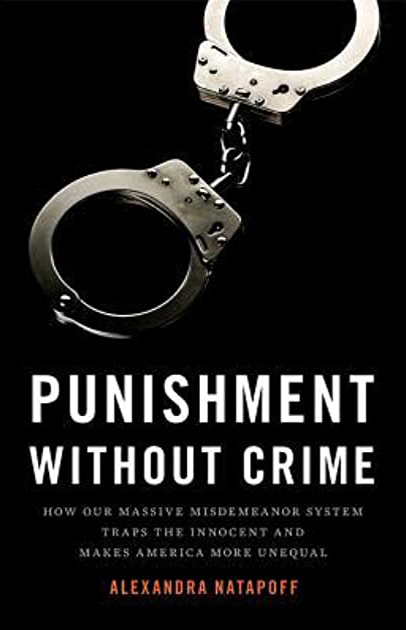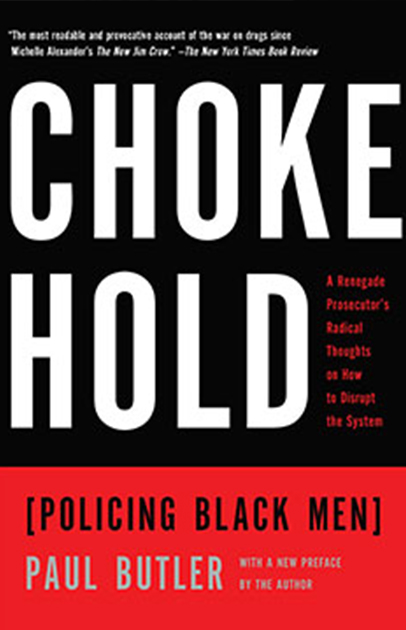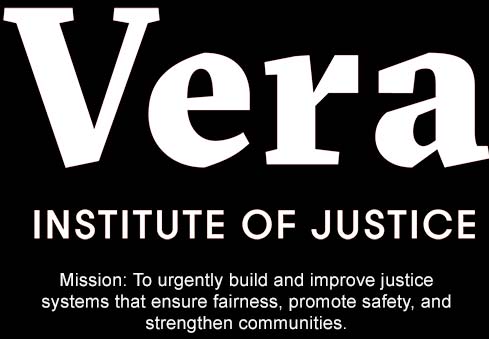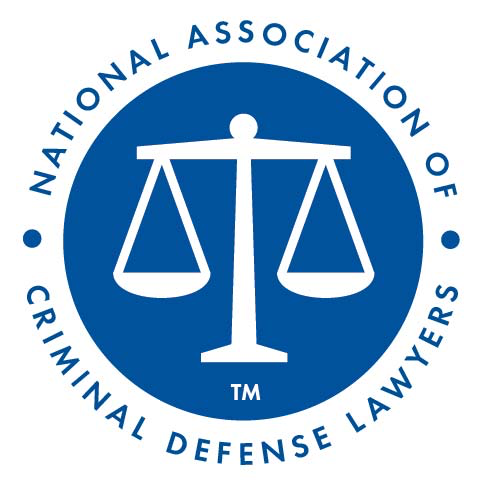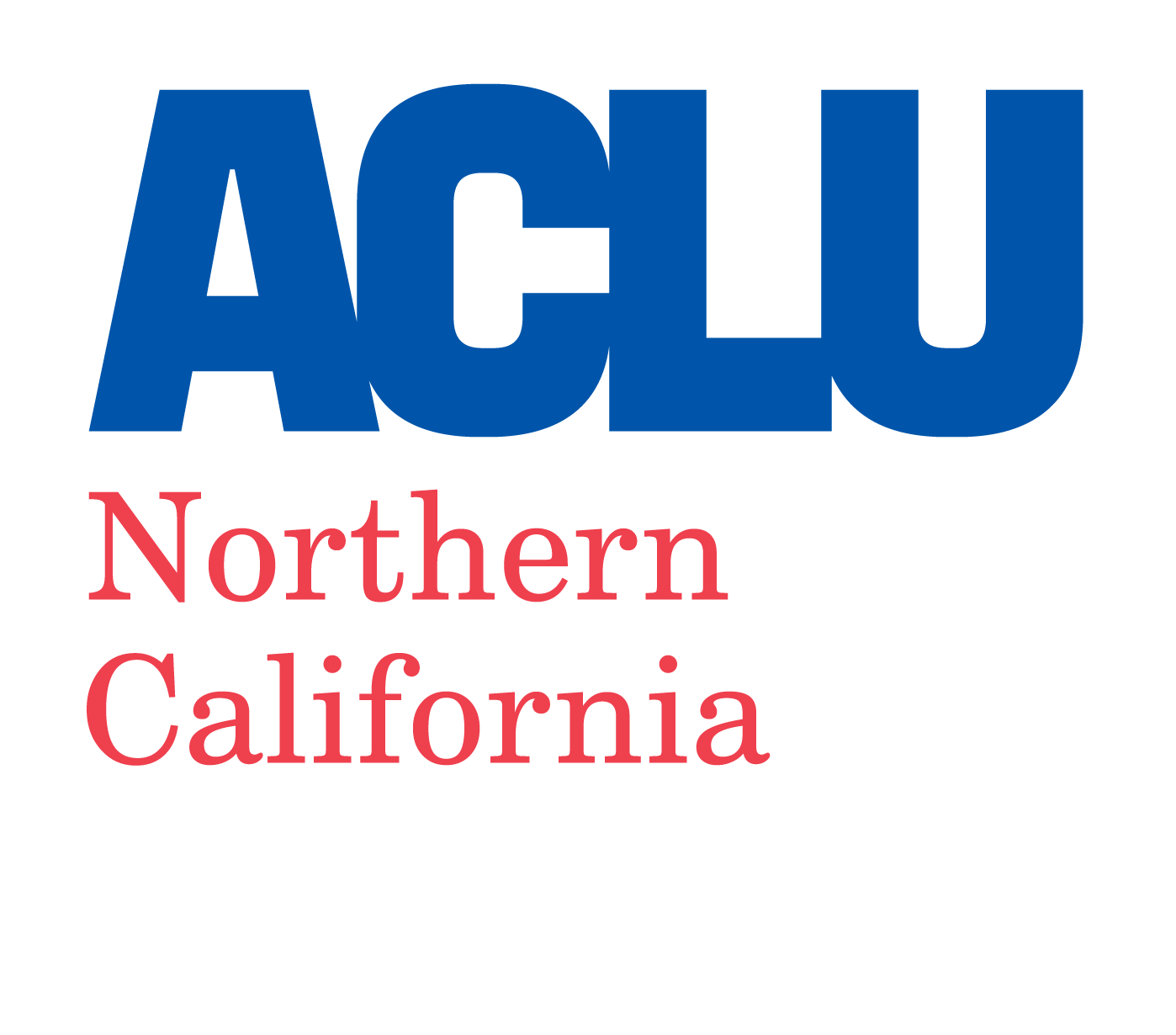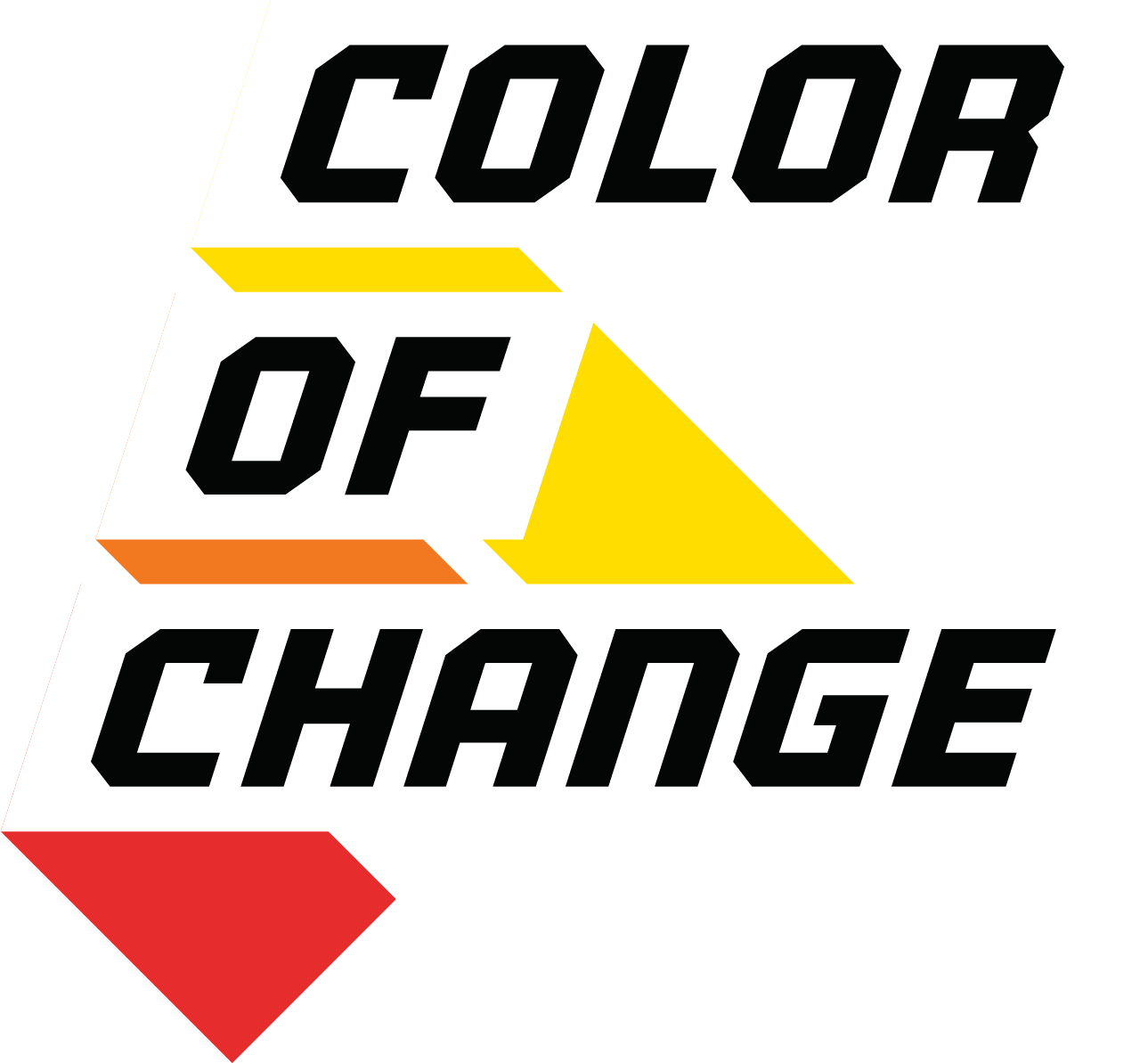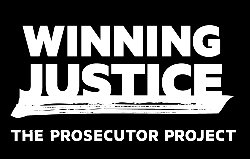Publications from our Experts
Alexandra Natapoff’s book was the inspiration for this film. One copy of the book will be made available for free to educators, non-profits, faith organizations and others that sign up and host a screening of the film.
Advocacy Groups
Additional Facts
In many states Black arrest rates for misdemeanors are 10 times that of whites*
Jaywalking
- 89.5% of NYC jaywalking tickets were issued to Black and Brown people*
- Urbana Illinois: 91%
- Ferguson Missouri: 95%
Today’s misdemeanor system brings in $80 billion dollars per year in fines and fees.
Profits
- Local municipalities
- Judges: training, retirement funds and salaries
- District attorneys
- Court administration
- Court security
- Clerk offices
- Public defenders
- Police transport
- Booking
- Trial and court costs
- Pay-to-stay and pre-trial detention
- Drug testing
- Probation and parole supervision
- Electronic monitory devices including ankle bracelets
Daily operations become a profit-making system; people are charged for their incarceration. Daily necessities become a way institutions and private businesses make money: cafeteria meals, trays and utensils, commissary, medical care, phone calls to loved ones, uniforms and laundry all come at a cost. And many times it’s the people who are incarcerated who are paying the price.
These costs disproportionately affect people who are convicted of a low-level offense or have yet to be convicted of anything and are awaiting trial.
10 million Americans owe more than $50 billion in criminal justice debt.
FINES AND FEES
Over 300 state municipalities rely on fines and fees to cover 20% of the their yearly budgets.*
More than 10 percent of general fund revenues in nearly 600 U.S. jurisdictions. In at least 284 of those governments, it’s more than 20 percent. Some other governments allocate the revenues outside the general fund. When fine and forfeiture revenues in all funds are considered, more than 720 localities reported annual revenues exceeding $100 for every adult resident.
Since 2010, almost every state has increased civil and criminal fees.
In 40 states people are charged for the costs related to their incarceration: charges for police transport, case filing, electronic monitoring, drug testing, and pay to stay, including pre-trial detention; user fees are intended to raise revenue.
Examples: Benton County, Washington, 25% of those jailed for misdemeanors on a typical day is for nonpayment of fines and court fees.
Rhode Island, 18% or 24 people a day jailed for court debt
The 50 cities with the highest proportion of revenue from fines and fees
5x more African American than the national average
The poorest zip codes = the most traffic infractions and are disproportionately African American and Latino.
BRAD (PRESENT DAY)
BRAD: I pled no contest. there was $117 Fine. And court costs and that was at the Forest Park municipal court.
I was pulled over while in the vehicle for window tint being too dark, there was no insurance for the car. So that suspended my license for six months and also gave me $500 fine.
Misdemeanor charge $150 fine
Impound fee car was $800
Total $1567
2016 Corey Statham had $46 in his pockets when he was arrested in Ramsey County, Minn., for misdemeanor disorderly conduct. He was released two days later, and the charges were dismissed.
$25 “booking fee.” To the county
His remaining $21 was put on a debit card subject to an array of fees.
$1.50 a week for “maintenance” of the unwanted card
$2.75 for using an A.T.M. to withdraw money
$3 for transferring the balance
$1.50 for checking the balance.
He was left with $7.25 for charges that were dropped.
Michael Robinson was granted home monitoring for his misdemeanor intoxication charge. The Judge stated:
$250. That's just to have it put on, $220 a month for the actual monitor. But what the judge ruled was not what happened;
$50,000 bond = $5,000 to get out of jail.
To get a copy of the judges ruling:
He had to pay people in the clerk's office individually for these transcripts.
Not Kendall County, not the court reporter, not the circuit clerk's office, individual people, which I have the receipt for it.
This person wants $300 that person wants $400 this person wants $500 to get your transcripts. Then when I got the transcripts, the transcripts were not even true transcripts. So that's stuff that judge said is not on the transcript, even though it's on the audio recording.
Now forced to wear ankle monitor at $330 a month. Even though that's not the price agreed on and he has to keep paying it or go back to jail
PAST - HENRY GALE, a freedman sentenced to 90 days, received a $5 fine and $9.95 for costs as a result of his charge for being a tramp.
Costs:
Fine: $5
Mayor’s fee: 3.90
Officer’s fee: 3.25
Jail fee: 2.80
Total: $14.95

Nationally costs per person ranges from $70 to $175 per day.
American taxpayers pay $14 billion each year to incarcerate people pretrial.
70% of people in jail could not afford bail and have not been convicted of any crime.*
3 out of 5 people in U.S. jails today have not been convicted of a crime, they cannot afford the bail.
Those who cannot afford bail and fees see their costs go up by 500%. See charts:
Person #1 – not indigent (can pay right away)
- Fine:$625
- Restitution:$30
- Court costs: $180
- SUBTOTAL: $835
- 25% collection fee: $209
- GRAND TOTAL: $1,044
Person #2 – indigent, cannot afford bail, fines and fees
- Fine: $625
- Restitution: $30
- Court costs: $180
- Indigent defense fee:$1,200
- Jail fees:$2,100 ($70 per day)
- SUBTOTAL:$4,135
- 25% collection fee: $1,034
- GRAND TOTAL: $5,169 (almost 500%)
The bail industry makes a profit of $2 billion a year.*
Examples of pay to stay in jail (including pre-trial detention)
- Virginia charge detainees up to $3 per day
- North Carolina, $10 per day;
- Kentucky up to $50.
- Tennessee $38 per day while they await trial.
Over 300 state municipalities rely on fines and fees to cover 20% of the their yearly budgets.*
More than 10 percent of general fund revenues in nearly 600 U.S. jurisdictions. In at least 284 of those governments, it’s more than 20 percent. Some other governments allocate the revenues outside the general fund. When fine and forfeiture revenues in all funds are considered, more than 720 localities reported annual revenues exceeding $100 for every adult resident.
Since 2010, almost every state has increased civil and criminal fees.
In 40 states people are charged for the costs related to their incarceration: charges for police transport, case filing, electronic monitoring, drug testing, and pay to stay, including pre-trial detention; user fees are intended to raise revenue.
Examples: Benton County, Washington, 25% of those jailed for misdemeanors on a typical day is for nonpayment of fines and court fees.
Rhode Island, 18% or 24 people a day jailed for court debt
The 50 cities with the highest proportion of revenue from fines and fees
5x more African American than the national average
The poorest zip codes = the most traffic infractions and are disproportionately African American and Latino.
BRAD (PRESENT DAY)
BRAD: I pled no contest. there was $117 Fine. And court costs and that was at the Forest Park municipal court.
I was pulled over while in the vehicle for window tint being too dark, there was no insurance for the car. So that suspended my license for six months and also gave me $500 fine.
Misdemeanor charge $150 fine
Impound fee car was $800
Total $1567
2016 Corey Statham had $46 in his pockets when he was arrested in Ramsey County, Minn., for misdemeanor disorderly conduct. He was released two days later, and the charges were dismissed.
$25 “booking fee.” To the county
His remaining $21 was put on a debit card subject to an array of fees.
$1.50 a week for “maintenance” of the unwanted card
$2.75 for using an A.T.M. to withdraw money
$3 for transferring the balance
$1.50 for checking the balance.
He was left with $7.25 for charges that were dropped.
Michael Robinson was granted home monitoring for his misdemeanor intoxication charge. The Judge stated:
$250. That's just to have it put on, $220 a month for the actual monitor. But what the judge ruled was not what happened;
$50,000 bond = $5,000 to get out of jail.
To get a copy of the judges ruling:
He had to pay people in the clerk's office individually for these transcripts.
Not Kendall County, not the court reporter, not the circuit clerk's office, individual people, which I have the receipt for it.
This person wants $300 that person wants $400 this person wants $500 to get your transcripts. Then when I got the transcripts, the transcripts were not even true transcripts. So that's stuff that judge said is not on the transcript, even though it's on the audio recording.
Now forced to wear ankle monitor at $330 a month. Even though that's not the price agreed on and he has to keep paying it or go back to jail
PAST - HENRY GALE, a freedman sentenced to 90 days, received a $5 fine and $9.95 for costs as a result of his charge for being a tramp.
Costs:
Fine: $5
Mayor’s fee: 3.90
Officer’s fee: 3.25
Jail fee: 2.80
Total: $14.95
Nationally costs per person ranges from $70 to $175 per day.
American taxpayers pay $14 billion each year to incarcerate people pretrial.
70% of people in jail could not afford bail and have not been convicted of any crime.*
3 out of 5 people in U.S. jails today have not been convicted of a crime, they cannot afford the bail.
Those who cannot afford bail and fees see their costs go up by 500%. See charts:
Person #1 – not indigent (can pay right away)
- Fine:$625
- Restitution:$30
- Court costs: $180
- SUBTOTAL: $835
- 25% collection fee: $209
- GRAND TOTAL: $1,044
Person #2 – indigent, cannot afford bail, fines and fees
- Fine: $625
- Restitution: $30
- Court costs: $180
- Indigent defense fee:$1,200
- Jail fees:$2,100 ($70 per day)
- SUBTOTAL:$4,135
- 25% collection fee: $1,034
- GRAND TOTAL: $5,169 (almost 500%)

The bail industry makes a profit of $2 billion a year.*
Examples of pay to stay in jail (including pre-trial detention)
- Virginia charge detainees up to $3 per day
- North Carolina, $10 per day;
- Kentucky up to $50.
- Tennessee $38 per day while they await trial.
Additional programs that go to private industry:
10 million Americans who owe more than $50 billion in criminal justice debt.*
Georgia, Missouri, New York, North Carolina, and Washington employ private collections agencies to manage delinquent fines and fees accounts.
This “offender-funded” model creates financial incentives for private probation companies to keep debtors in the system.
Rehabilitation programs and halfway houses
As of 2016, 4.65 million people were under some form of probation or parole supervision
2 largest: GEO Group and CoreCivic Rebranded as providers of rehabilitation-related services
CoreCivic revenue
$1.981 billion USD (2019)
GEO Group revenue
$2.477 billion USD (2019)
48 states charge a fee for the electronic monitoring devices MISDEMEANOR defendants and offenders are ordered to wear
Inmate industries that are mostly commissioned based (meaning kickbacks to the institution or sheriff):
Food: most provided by a gov’t contract to provider (such as Aramark)
Commissary: grossly marked up essentials such as soap, toothpaste, and toilet paper, plus snacks and high-dollar “luxury food” such as $15 cheeseburgers. These items must be purchased with a commissary account that charges deposit fees and electronic transfer fees (usually to the inmate’s family).
Medical care – every visit costs the inmates and many services are farmed out so that doctors are actually making rounds in these institutions
Tech and communications: “donating” tablets to facilities and then they can charge the inmates postage for emails, video calls, games, etc. Transferring just $10 to a loved one can cost as much as $4.15
Jpay “gave” a facility in NY 52,000 tablets as part of a bundle contract. They assured lawmakers it would not cost taxpayers a dime, a promise they stick to. 52,000 tablets cost inmates and their families $9,000,000.00 in just 5 years at one facility:

Bundled contracts combine phone calls with other services, such as video calling technology, electronic tablets, and money transfer for commissary accounts.
2017 Illinois digital commissary sales $1,141,798
Charging pretrial defendants high prices for phone calls punishes people who are legally innocent, drives up costs for their appointed counsel, and makes it harder for them to contact family members and others who might help them post bail or build their defense. It also puts them at risk of losing their jobs, housing, and custody of their children while they are in jail awaiting trial.
In these misdemeanor jails phone calls cost 52 x more.
$1.75 billion industry with 94.1% of the revenue from phone calls is turned into ‘kickbacks’
The two largest providers, Securus and Global Tel Link, form a virtual duopoly in the market.
- E-Cigarette scandal #1
- E-Cigarette scandal #2
E-cigarettes – the most egregious and the most recent and burgeoning. Many law enforcement official and/or their families are creating e-cigarette businesses and selling to the jails. Profiting in both commission on the sale and their business bottom line. The companies blatantly advertise it as a revenue stream and something that “calms” inmates.
41 million traffic violations are issued in the US each year, raising over $6 billion dollars annually.*
One in every six Americans gets a speeding ticket every year — that’s about 41 million tickets a year and 100,000 tickets per day. The actual total is much higher if other moving violations are added.
Nationwide almost 9,000 statutes disqualify people with misdemeanors from jobs, housing, education and other core needs.*
9 out of 10 employers use background checks, 66 percent of colleges and universities use background checks in the admissions process. four out of five landlords use criminal background checks to screen out potential tenants. 79 percent of returning citizens reported being denied housing one in three American adults have some type of criminal record. That translates to nearly half of U.S. children—between 33 and 36.5 million—with at least one parent with a criminal record. More than 60 percent of formerly incarcerated individuals remain unemployed a year after being released. Those who do find jobs receive 40 percent less pay than those who have never been incarcerated.
Unregulated criminal background checks have barred 65 million Americans from obtaining secure and sustainable employment


